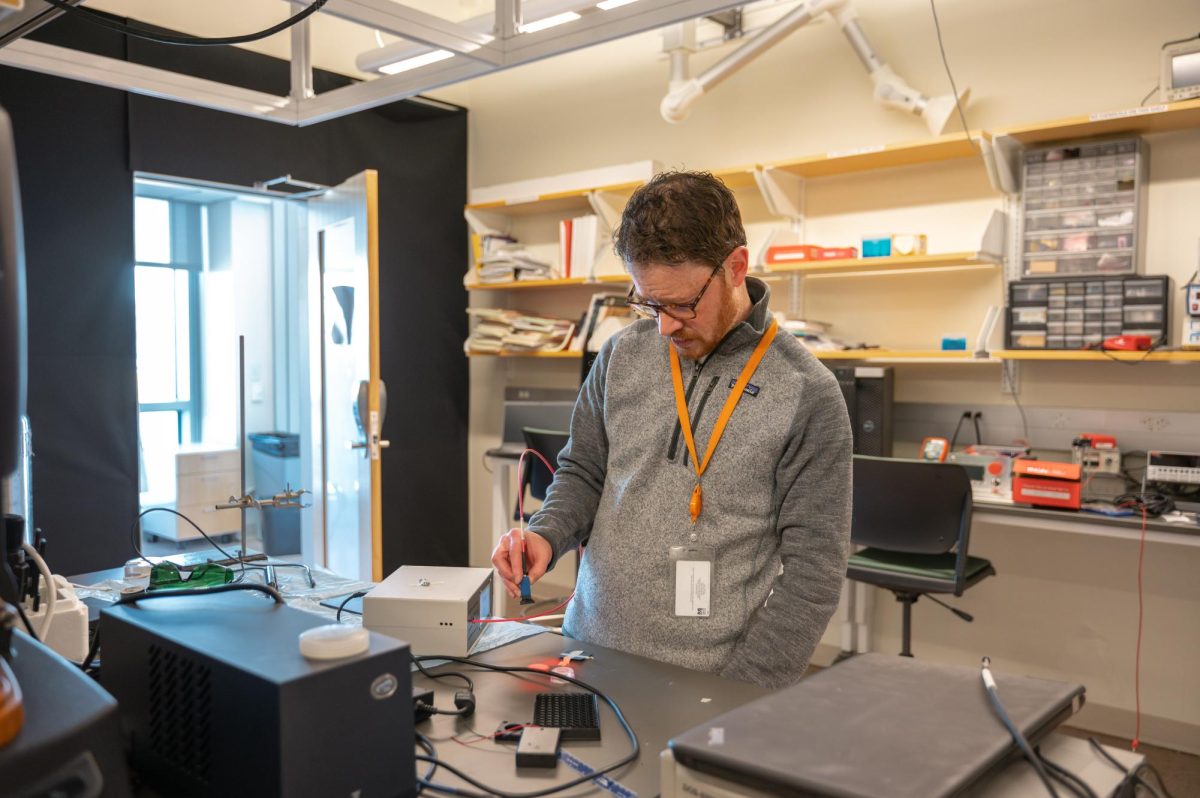Johnathan Celli, a physics professor at UMass Boston, has been awarded $608,000 for the development of a device that can both screen and treat oral cancer. The funding, which comes from the National Cancer Institute of the National Institutes of Health, is part of a five-year cooperative agreement in collaboration with Massachusetts General Hospital and the University of Arizona.
The oral cancer screening device being developed is an improved version of a prototype built at UMass Boston through previous NCI funding.
“We are working closely with collaborators at University of Arizona and MGH to complete design and testing of new hardware in time for the launch of a clinical trial in India by early 2025,” said Celli.
Although the device will undergo testing in India, Celli hopes that the technology can eventually be expanded to where cancer treatment is inaccessible or too expensive: “This work is all about using technology to promote equity in access to cancer care. Although we launched this effort in India, motivated by particularly urgent unmet needs in oral cancer screening and treatment, we do plan to build on this both globally and closer to home.”
Previous tests of the prototype device have yielded positive results. As a press release from UMass Boston explains, the device eradicates malignant cells through photodynamic therapy, which involves using a light source in combination with light-activated medication. Out of 29 patients with early stage oral cancer, 22 were able to completely rid their tumors using PDT. [1]
The device’s design is small and compact, and PDT is low-cost compared to other more invasive treatments, which may also come with debilitating side effects. Further lessening the financial and physical burden on patients is the ability for their medical providers to screen and treat their disease in a single appointment.
“And from the clinical outcomes with our first gen technology, we believe this approach will ultimately have impact in all clinical settings, including where surgery and radiation are readily available,” said Celli. “Especially for early stage cancers or high risk pre-malignant lesions, PDT can achieve complete response with excellent healing of the oral mucosa in a single treatment that spares patients from surgery.”
Celli and collaborators from MGH and the University of Arizona are among those who are not only pursuing advancements in medical science, but making sure that these treatments are available to patients and not held back by barriers such as location and lack of resources.
“Of course there is still a lot of work to be done before this becomes available to all patients,” said Celli. “Larger scale clinical trials need to be completed and regulatory approvals obtained, and all of this will require ongoing funding and industry partnerships.”
According to the positive results of the oral cancer screening device, when questioned if it is possible for the same PDT technology to be used to treat other cancers, Celli answered: “Yes, we are actively in discussions with clinicians about how the same basic light delivery strategy can be adapted for other cancers.”
Additionally, as a part of UMass Boston, the Celli Lab has provided the opportunity for graduate and undergraduate students studying biology, engineering and physics to participate in this project. It is an exciting chance for students to take part in a project with life changing impacts for patients who will undergo testing of this technology.
For students who are interested, the Celli Lab’s other research endeavors include measuring, monitoring and targeting sensitive growth behavior in 3D tumor models. [2] Eventually, a research position in the Celli Lab or another lab on campus will also be available to students.
SOURCES:
[1] https://www.umb.edu/news/recent-news/physics-professor-receives-608k-in-nci-funding/


